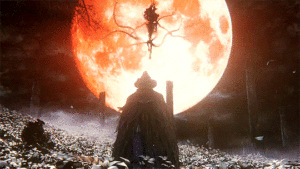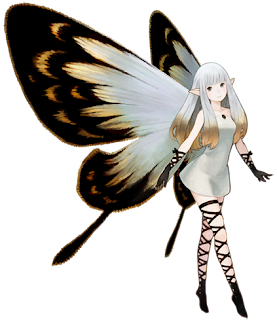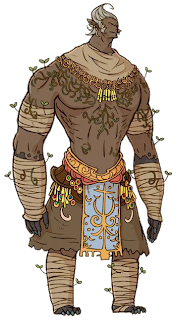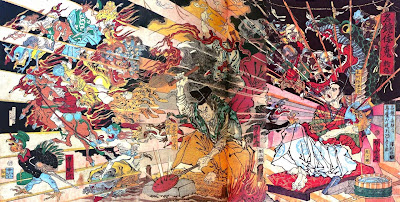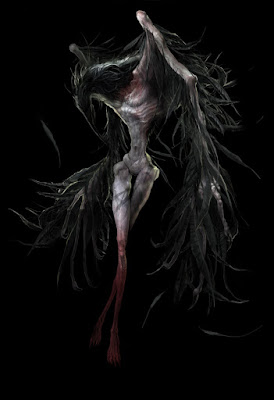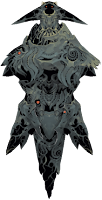// THE NEW AGE
 |
| from Akira |
// THE KATABATIC ZONE
// CUATROS SANTOS
 |
| from Dorohedoro |
Step 1: Roll or choose your background and make note of your favored attribute and starting skills.
|
job
|
preferred attribute
|
starting skill
|
|
employee
|
appeal
|
bullshit, linguistics
|
|
gearhead
|
intellect
|
engineering, computers
|
|
PI
|
physique
|
athletics, streetwise
|
|
delinquent
|
speed
|
driving, larceny
|
|
esper
|
psyche
|
mantia, science
|
|
merc
|
combat
|
firearms, first aid
|
Step 3: Max HP = 6. Make a Psyche/Mantia check. If you succeed, you have 1 Nous Die.
Step 4: Determine starting gear. You start with five items a competent shoplifter could get out of a Walmart and a random weapon. Italicized weapons can be hidden, bolded weapons require two hands. You can find armor and more gear on your misadventures. Guns are available, but illegal and hard to find.
|
roll
|
weapon
|
|
1
|
machete [d6/d6]
|
|
2
|
sword [d8/d6]
|
|
3
|
baseball bat [d4/d8]
|
|
4
|
switchblade [d4/d8]
|
|
5
|
hairpin [d4/d6]
|
|
6
|
chef knife [d6/d6]
|
|
7
|
mall sword [d4/d6]
|
|
8
|
crowbar [d6/d6]
|
|
9
|
signpost [d8/d6]
|
|
10
|
bicycle chain [d6/d6]
|
 |
| from Michiko and Hatchin |
// SHADOW SCIENCE
Mantia is the shadow-science manipulating esoteric phenomena and entities. If you have a Nous Die, you can roll to start with one random Mantic trick. Mantia is extremely illegal in Cuatros Santos, but you can learn Mantic tricks from samizdat manuals and cooperative eidola. If you don’t have any Nous, imbibing (and surviving) esoteric substances, surviving eidolon attacks, spending time in esoteric fields all might give you some.
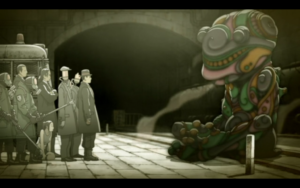 |
| from Toujin Kit of Genius Party anthology |
1. Summon
Instantiates an eidolon of [dice] levels or fewer you have made a contract with. You can dismiss it at will unless it has failed a Morale check since you last summoned it.
2. Apotropaic Tone
Sing a low note note bearing a repulsive polarity, requiring eidola to make an Aptitude check to get within [dice] yards of you. Lasts for as long as your voice lasts. Eidola that succeed their check can ignore the tone until the next time you use this ability.
3. Beckoning Tone
Sing a low note that bears a compelling polarity, requiring eidola within [dice] yards of you make an Aptitude check or reveal themselves and approach you in their true form. Lasts for as long as your voice lasts. Eidola that succeed their check can ignore the tone until the next time you use this ability.
4. Esoteric Lens
Form a simple loupe in the form of a translucent stone in your clenched fist. If gazed through, reveals eidola and esoteric fields within [dice] yards. Lasts for [dice] turns.
// NEGOTIATION
Roll Disposition Die + Faction Die on below table to determine encountered NPC’s reaction. Disposition Die is how the NPC views the party/leader/interlocutor personally, so stuff like high Appeal or cool clothes help. Faction Die is the party’s credibility with the encountered NPC’s organization or alignment. Both start at d6 and raise or lower based on various factors.
|
roll
|
reaction
|
|
2
|
hostile – attack
|
|
3-5
|
unfriendly – attack in 1 round without a good reason
|
|
6-8
|
uninterested – ignore the party without a good reason
|
|
9-11
|
talkative – will help the party for a good reason
|
|
12
|
amused – will help in the party for a decent reason
|
Human hirelings and contracted eidola are a key component in surviving in the Katabatic Zone. PCs can’t have more allies (whether they are humans or contracted eidola) than 1/3 their Appeal score, rounded down. If an ally is endangered, compromised, or insulted, their employer may be required to make an Appeal check to not lose their loyalty.
 |
| from Shin Megami Tensei IV: Apocalypse |
// DAMAGE AND WOUNDS
Notice how each weapon in the list had two dice? The first is the Damage Die. If an attack lands, roll it and subtract the value from the target’s HP like normal. Easy. Being reduced to 0 HP means you have to make a Physique check or die, and are incapacitated still on a success.
The second is the Location Die which determines where the attack lands. Some weapons are more deadly/lends themselves well to clonking people on the head, and so have a better Location Die.
- A location that’s been hit has a minor wound. Until it’s patched up with a turn of effort, any action that requires using that body part has disadvantage.
- A location that has an untreated minor wound that gets hit again has a major wound, which means it any action that requires using that body part has disadvantage until you spend time laid up to heal.
- Further injury to a location with an unhealed major wound renders it useless. If it’s your head or torso, you’ll also need to make a Physique check to see if you die, and are still incapacitated on a success. If you’re alive when the smoke clears, you may have permanent consequences.
|
roll
|
location
|
|
1-2
|
legs
|
|
3
|
Torso
|
|
4-5
|
Arms
|
|
6+
|
Head
|
Armor is per hit location and reduces all incoming damage by its Armor Score. An attacked reduced to 0 damage does not injure its hit location. A turn’s rest in a safe place restores 1d6 HP, as does resting in a dangerous place and eating a snack.
// MISADVENTURES
- Shady Dr. Sepulveda has a standing offer for esoteric substances and artifacts extracted from the Katabatic Zone. The Administration that runs Cuatro Santos certainly frowns/prosecutes such exercises, but she pays pretty well.
- Sepulveda’s bitter rival Dr. Jimenez wants eikonometry readings from the Seventh Heaven, a particularly rarefied region of the Katabatic Zone ruled by eidola born from a desire for order. He’s willing to pay quite a bit for your trouble.
- Word on the street is that a commando expedition armed with exoskeletal Frames never came back from their mission into the Katabatic Zone. Whatever got them is probably still lurking, but it sure would be sweet to have a mech or two.
- Somebody’s been constructing eidolon familiars from dream-stuff and selling them to gangs inside Cuatro Santos as obedient heavy muscle. Old Man Ramiro will pay good money to anyone who can shut down his rival’s suppliers, especially since the Bureau of Affairs has started sniffing around.
- The Bureau of Affairs is keeping something really tasty in one of their labs not far from the edge of the city. Nobody knows what it is, but everyone knows it’s valuable. Up for a heist?


